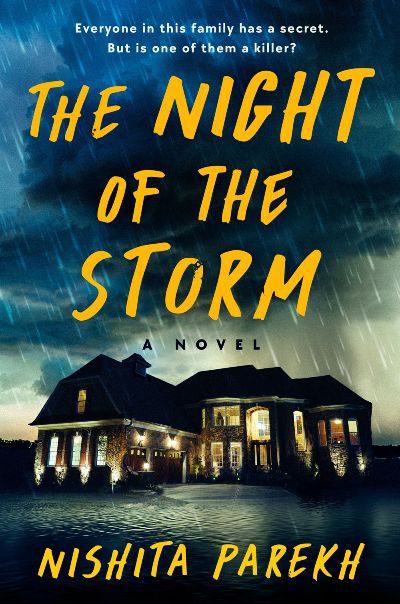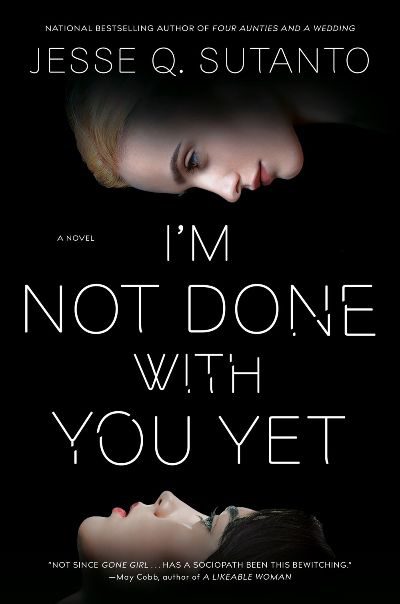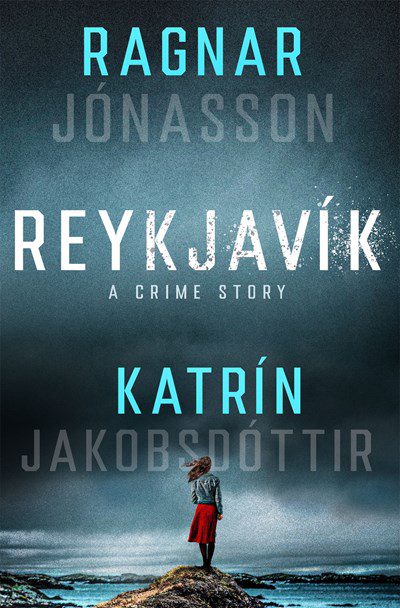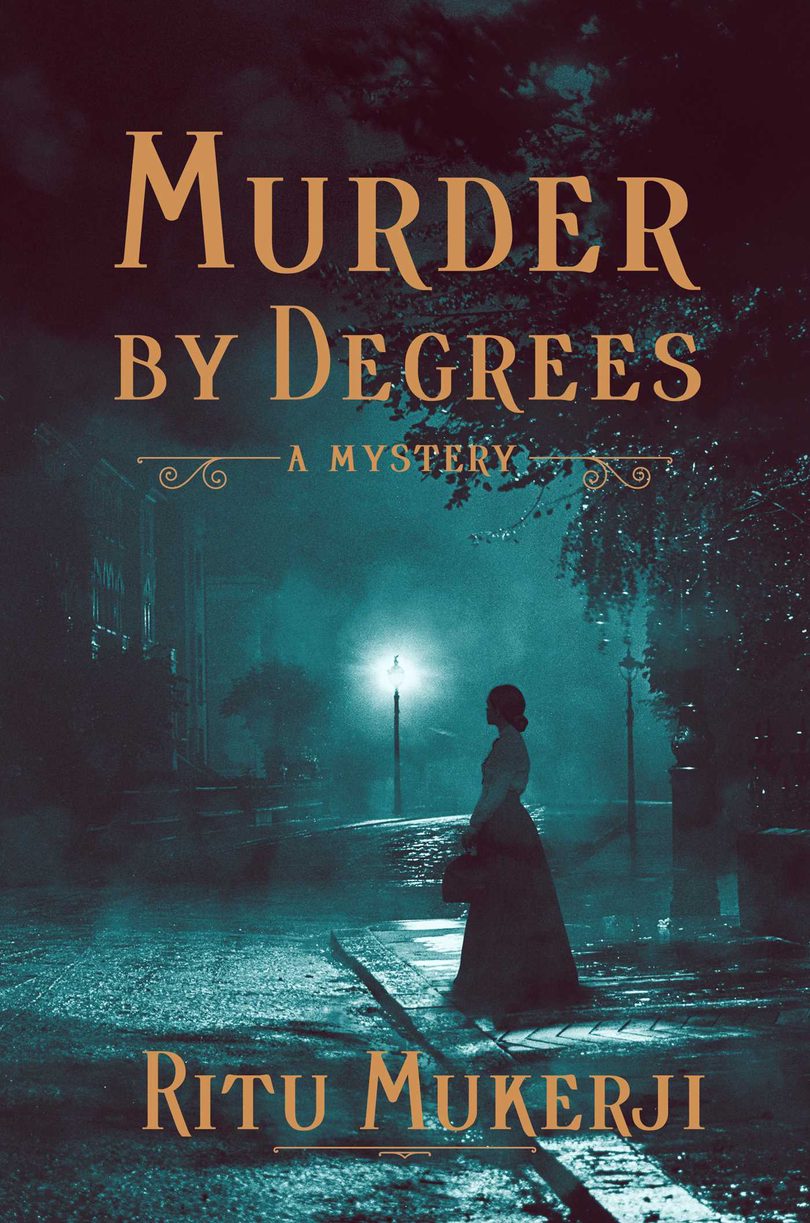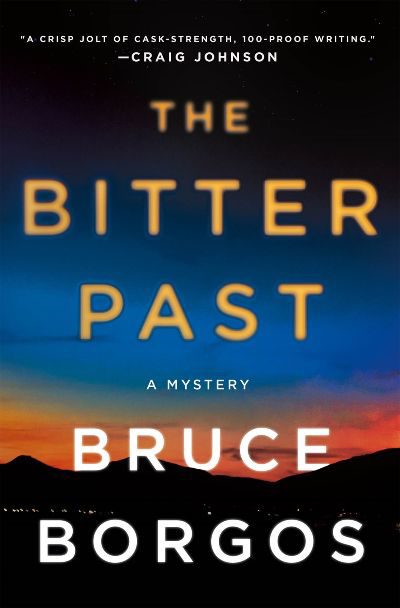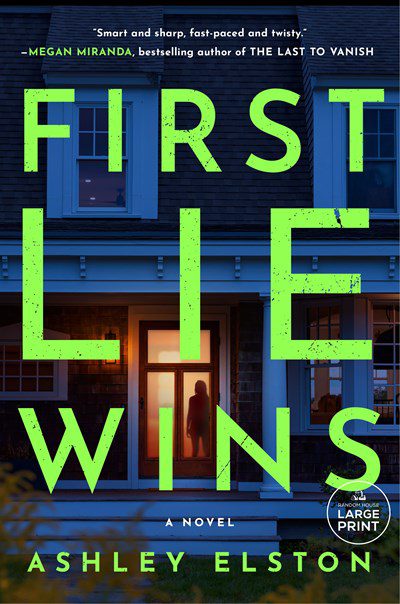Garrett Kohl’s plan for a normal life on his Texas ranch goes awry in Moore’s latest action thriller. He learns that his adopted son’s brother might still be alive in Afghanistan, and he will have to lead the rescue operation if there is a chance of it succeeding. Doing so could cost him a chance to marry his high-school sweetheart and the peaceful life he has promised his friends and family. When Garrett learns about a possible act of sabotage with international implications that could destroy the region, he must put aside his feelings and work with both CIA allies and neighborhood enemies to stop the potential carnage. C.J. Box meets the television series Yellowstone in this wild and compelling thrill ride amidst a beautiful Texas landscape. Moore has crafted a cast of characters and a locale that feels authentic. Readers will be eager for the author’s next adventures.
Review
The scene: Hurricane Harvey hitting affluent Sugar Land, TX, in 2017. Readers will fear the worst, knowing how bad the storm became, but Jia Shah feels she’ll be safe at her sister Seema’s sprawling, ostentatious house. Her brother-in-law, who luckily knows everything, assures all that nothing can happen to his house. Misogyny’R’Us mother-in-law and overbearing sister notwithstanding, Jia believes that once she and her son ride out the storm—and her family’s endless comments about her dire fate as a divorcee—they can get back to life as they knew it. Then Jia notices that the neighborhood seems curiously empty. Except, that is, for a neighbor who stares in the window. Soon things become far more than just creepy as the bodies start to pile up. Debut author Parekh builds tension wonderfully as the storms outside and inside the house threaten to wipe out everything Jia holds dear; she also excels at provoking exasperation at the backbiting family’s antics while crammed into an inescapable nightmare. For those who like locked-room and closed-circle dramas.
Pulitzer Prize-winner Whitehead’s second Ray Carney book begins in the 1970s, when Ray’s Harlem furniture shop is firmly established. But, given the chaos that it engendered in Harlem Shuffle, his stolen-goods—sorry, “previously owned merchandise”—sideline is no longer. Readers of the previous book will find the setup turned inside out: instead of conquering Harlem, Ray has been ground down by it. He now sits precariously atop his small empire, the relentless engine that is the city seeming to churn the ground beneath his feet. Also different: this time Ray endures the relentlessness of several decades of upheaval compared to the relatively short and, in retrospect, gentle, time when he was a striving young man in the ‘60s. The neighborhood doesn’t want to let him retire his fenced-goods work and the Black Panthers and Black Liberation Army are competing for dominance, a fight Ray wants to sidestep. A crackdown on police corruption sees him dragged into worse and worse actions as his former associates get desperate. Ray’s troubles and determination mirror the fighting spirit of his neighborhood; his saga is New York City’s, with the shocking and sad tale displaying moments of hilarity alongside heartbreaking lows. Whitehead’s writing is fantastically evocative as usual, and his rebuilding of recent decades of New York City life, and of the unforgettable Ray Carney, is a treat to read.
The bitchiness we loved in Dial A for Aunties is back with a vengeance. This time, the author takes us, via flashbacks, to the nervous, early days of an American student at Oxford University. Jane Morgan’s mother has drilled into her daughter that she can’t write and can’t do anything else right either, and Oxford isn’t for the likes of her. So it’s a relief when Janemeets the confident, beautiful Thalia Ashcroft. For Jane, it’s obsession, if not love, at first sight. She’ll do anything to keep Thalia’s friendship, and is desperate to keep her from Ami, a blithely rich student who looks like competition for friendship with Thalia. It’s a struggle—everything’s so hard for Jane, who must continually remind herself that her sociopathic behaviors—“antisocial (check), hostile (check), irresponsible (check)”—must be kept under wraps if she’s to get ahead. Then everything unravels, a situation hinted at in the present-day section of the book as the time Jane left Oxford after an unnamed disaster. What happened, and how the women confront each other and the event’s aftermath all these years later, is a thrilling tale filled with twists, unreliable narrators, and absurdness of the best kind. For Dial A for Aunties fans and anyone who likes a friendship drama.
A classic mystery from Katrín Jakobsdóttir, Iceland’s prime minister, and bestselling Icelandic crime writer Ragnar Jónasson. Back in 1956, a 14-year-old girl, Lara, disappeared without a trace at the end of the summer. She had been working as a maid for a well connected couple who spent summers on Videy, a remote island off the coast from Reykjavík. Eventually, Lara’s disappearance became Iceland’s most infamous unsolved case. On the 30th anniversary of the event, Valur Robertsson—a young, ambitious journalist—takes up the case, publishing a series of articles that imply he has new information, setting the nation on edge. But just when the public expects a revelation, the narrative takes a 180-degree spin, and the threat of violence becomes all too real. While it’s a well-done mystery, Reykjavík also provides tremendous insight into Iceland at a time of change, expasnion, and corruption. Sure to appeal to a broad swath of crime-fiction readers.
Set in post-Civil War Philadelphia, this is historical crime fiction that goes deep into the many strata of society, from recent immigrants to medical students, from the police to the very rich. At its heart is Dr. Lydia Weston, practicing medical doctor and professor at the Women’s Medical College. When Anna Ward, a patient of Lydia’s, is found dead in the Schuylkill River, Lydia refuses to believe she died by suicide. Instead, Lydia manages to become part of the police investigation. Fortunately, Anna kept a diary, and by examining the patient’s writings and her cadaver, Lydia is able to begin to piece together some of what happened. Anna’s story takes us all over the city, displays the antipathy so many had for women doctors, and exposes the risks Lydia took to solve the murder. For readers who love to be transported to another era. Fans of Jacqueline Winspear and Victoria Thompson will love this book.
“Everybody knows everything about you in this stupid town. And they know nothing.” What people in Madeline Martin’s rural New York town know about her is that she’s the daughter of the town’s longtime, beloved sheriff and she owns The Next Chapter, her dream bookstore. They also know, but rarely mention, that she survived a brutal attack ten years before, one that saw her friend Steph murdered and two other friends, sisters Ainsley and Sam, disappear. What they don’t know is that Maddie’s never recovered emotionally and longs to know what happened to her friends. There’s still no word on the missing teens, and it’s a few days before the anniversary of the attack, which also means Christmas is a few days off and the bookstore is humming. Superstar author Harley Granger chooses this as his moment to visit and start his research on whether the man doing time for the crime is guilty, what happened to Ainsley and Sam, and, most urgently, where a newly disappeared exotic dancer could be. All breathlessly documented on social media, of course. Fans of Unger will know her thrillers match top-notch writing with gripping stories; this one won’t disappoint in that regard and offers the bonus of a satisfying family story in Maddie and her father.
The third in the Two Rivers series has DI Matthew Venn and colleagues off to the tiny town of Greystone on the Devon coast. While much of Devon is popular as a vacation spot, Greystone’s color palette (gray, grayer, and grayest) combined with the dark, turbulent sea makes for a forbidding destination. To the locals’ delight, Greystone’s only celebrity, Jem Rosco, a famous sailor and adventurer, has returned. He spends his nights in the local pub, where he lets it be known that he’s back in town to meet up with someone special. A former lover? Perhaps. Except Rosco suddenly disappears before we find out, his body found naked, curled up in the bottom of a dinghy that’s anchored in a cove. A cove with a superstitious history. With her usual brilliance, Cleeves balances Venn and Co. as they spread out across the town seeking information while also drilling deeply into the lives of a handful of leading suspects. Personal tensions arise. Matthew’s team members compete with one another. Matthew himself is uncomfortable in Greystone, having spent part of his cult-ridden childhood in the town. And Jonathan, Matthew’s husband, has a secret he’s not ready to share. When this novel ends, it’s with a bang, not a whimper, sure to delight readers of what is one of the very best series being written today.
The high desert of eastern Nevada is Borgos’s setting for this series debut, and it opens with the most violent death Sheriff Porter Beck has seen. A retired FBI agent, Ralph Atterbury, looks to have been tortured for hours, his skin removed in strips and his nipples blowtorched. It can’t be a routine break-in, but what could the man have done that would inspire such rage? Flashing back to supposedly a more apple-pie time, Nevada in the Cold War, we meet Freddie Meyer, a young man who’s humble enough to go steady with Kitty Ellison, a bookish girl who “wasn’t the most striking” of her friends. In due course, Kitty’s physicist father helps Freddie get a job—he’s just so gosh-darn grateful!—at the nearby atomic testing site’s top-secret project. Readers are let in on the audacious, almost unbelievable plan that unfolds, one that Beck slowly uncovers as he seeks the identities of Atterbury’s killer and a Russian spy who he believes worked at the testing site all those years ago. Beck has the nice-guy relentlessness that readers love in an investigator. His love interest, present-day FBI agent Sana Locke, adds wiles and beauty, and the Cold War storyline is gripping. I can’t wait for the next from Borgos.
Ryan Summer helps a young woman named Evie Porter with a flat tire, and shortly afterward, they are inseparable in Elston’s twisty thriller. He falls head over heels for her, but in Evie’s case, the relationship is an assignment from her mysterious boss she has never seen, Mr. Smith. Her orders are to get close and obtain information about Ryan’s business. As time passes, she finds herself falling for her mark, and one evening, while meeting some of Ryan’s friends, she meets Lucca Marino. Evie’s real name is Lucca Marino, and this woman is using Evie’s real-life identity and background. It’s clear her boss has put a target on her back, and she will have to use all her manipulative skills to stay alive, even if that means she has no realistic chance of returning to her old life. Retirement is not an option. Elston has crafted a story that stretches credulity a bit, but works. Readers will be dying to finish this fast enough so they can decipher what’s going on, and it’s a guarantee that they’ll find the truth unexpected. Fans of Hank Phillippi Ryan and Megan Miranda should seek this out.


